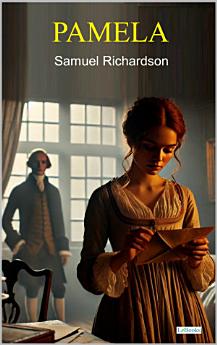Pamela
About this ebook
Since its publication, Pamela has been celebrated for its pioneering use of the epistolary format and its focus on the inner emotional lives of its characters. The novel's emphasis on virtue and morality in the face of adversity has inspired debates about its didactic tone and social implications. Its central themes of personal agency and social aspiration resonate in various literary and cultural adaptations.
The enduring relevance of Pamela lies in its exploration of moral dilemmas and the intersection of personal integrity with societal expectations. By portraying the struggles and triumphs of a young woman in a restrictive social hierarchy, Pamela offers insights into the enduring questions of virtue, power, and human resilience that continue to engage modern audiences.
About the author
Samuel Richardson was an English novelist and printer, often regarded as one of the pioneers of the modern novel. Born in Derbyshire, England, Richardson became a significant literary figure of the 18th century, known for his groundbreaking use of epistolary form and his exploration of themes such as virtue, morality, and human relationships. His works were immensely popular in his time and played a pivotal role in shaping the development of English literature.
Richardson's works are characterized by their deep psychological insight and moral undertones. His second novel, Clarissa, or the History of a Young Lady (1748), is considered his masterpiece. Spanning eight volumes, the story revolves around the tragic fate of Clarissa Harlowe, a young woman caught between her family's ambitions and the manipulations of the villainous Lovelace. The novel is celebrated for its exploration of complex characters and its critique of societal norms.
Richardson's novels were revolutionary for their time, influencing the development of the novel across Europe. He was praised for his ability to portray the inner lives of his characters, particularly women, and his works became models for subsequent writers, including Jane Austen and Henry Fielding. His emphasis on virtue, moral dilemmas, and emotional depth helped establish the novel as a tool for both entertainment and ethical reflection.
Despite criticism for his didactic tone and sentimentality, Richardson's contributions to literature remain enduring. His exploration of themes such as power dynamics, gender roles, and social expectations continues to resonate with modern readers and scholars.







